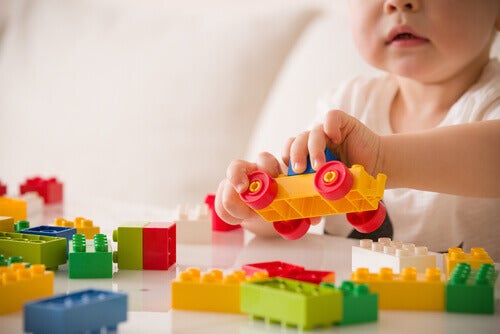The game is an activity that we develop naturally from children, the ability to play, at first glance, may seem to have no other role than to entertain and entertain, however, a few decades ago, psychologists began to wonder if this position was really correct That is why many education psychologists have studied in detail the relationship between play and child development.
A fundamental aspect to understand, and that can impact us, is that from an evolutionary perspective we can always find more reasons than the pure pleasure of performing actions that we appreciate, that is, from this perspective and unaware of pathologies, if something generates pleasure, it is because it is useful evolutionary. Therefore, according to this reasoning, the game must have a function or utility. In addition, studies show that a very restrictive limitation of hours of play in childhood is associated with poorly adapted adults.
- To answer the question of the link between play and child development.
- We must open our minds to different theories; if we compare them to the supporting evidence.
- However.
- If we want to understand the complex role it plays in our development.
- We need to take a broad perspective and look at all the available data.
One of the first authors to study this topic was Karl Grooss, who saw the game as a previous exercise. This would be necessary to achieve psychophysiological maturity as a growth-related phenomenon, the game would consist of a preparatory exercise for the development of certain functions, motor play would facilitate physical development, while psychological play would prepare the child for social life. Since the game takes place in a safe environment, the child can train in various skills without taking any risks.
A totally different point of view is Freud’s, for psychoanalysis the game would be intimately linked to the expression of unconscious impulses, which would allow the human being to satisfy his dissatisfied desires in reality. This theoretical, if attractive, perspective has little scientific knowledge. evidence to support it and also violates the principle of parsimony that governs science.
For Vygotsky, the game is a social activity in which the main aspect is cooperation between participants. Through this cooperation, each participant learns to assume a role (adopting roles); essential aspect of adult life. Vygotsky focused exclusively on the symbolic game and noted how objects take on meaning in the game itself (a stick between the legs can become a horse, for example). We see a socio-constructivist perspective, based on the fact that the main function of the game for him is to learn to share functions and meanings.
Another author who theorized about the game was Jerome Bruner, according to his point of view, the game is linked to the immaturity with which humans are born, which means that people can provoke a wide variety of behaviors that offer us a very flexible adaptation. The game would be useful to test all these behaviors and discover their adaptation to the cultural-environmental context. By doing so in a playful context, the person is freed from any pressure and can experiment by minimizing the negative consequences.
Piaget, one of the great psychologists of development, also talked about the game, according to him, the game does not differ from non-playful activities, for him the game would be an adaptive action with which the child learns the characteristics of reality and, in a way, controls them, which is closely related to the concepts of assimilation and accommodation developed by Piaget.
While there are various visions of the role of the game, it is clear that this is an important activity in the context of child development and, moreover, a relevant aspect is that the different perspectives are not incompatible with each other. and child development can be multiple and rewarding.
Now that we know the different possibilities in it, we can imagine the relevance of this activity, if the game does not exist in a child’s life can affect their physical, psychological and social development, so it is essential that fun activities (without pressure and with enormous intrinsic motivation) are present in the day to day of our children.
A game-based education will provide the opportunities to grow in every way, in this sense we will not make the mistake of changing the game to intellectual or cognitive activities that we consider potentially more rewarding. , cognitive and intellectual development will be affected, let us not forget that before we are born we are already growing, developing and that, in order for the game to remain so after birth, the game is fundamental, as a natural and pleasant inclination that is.

